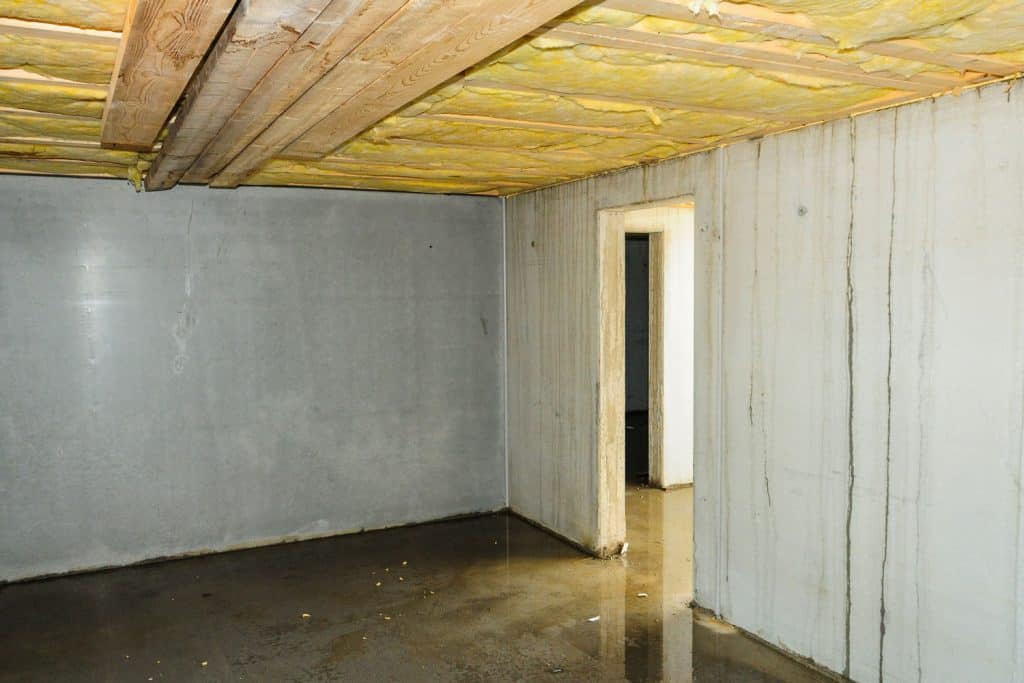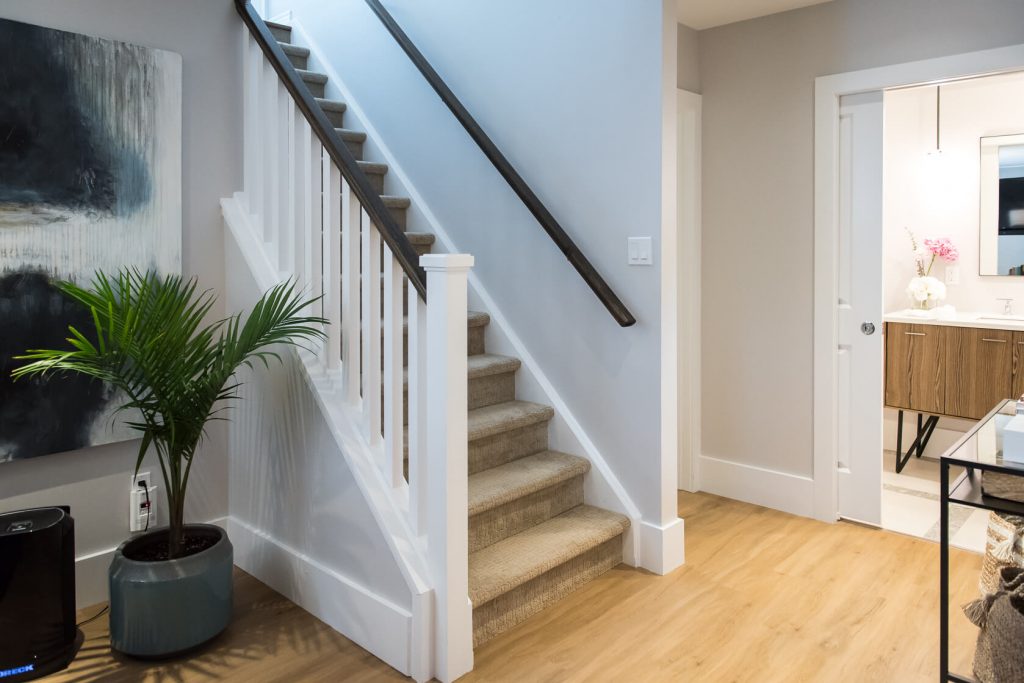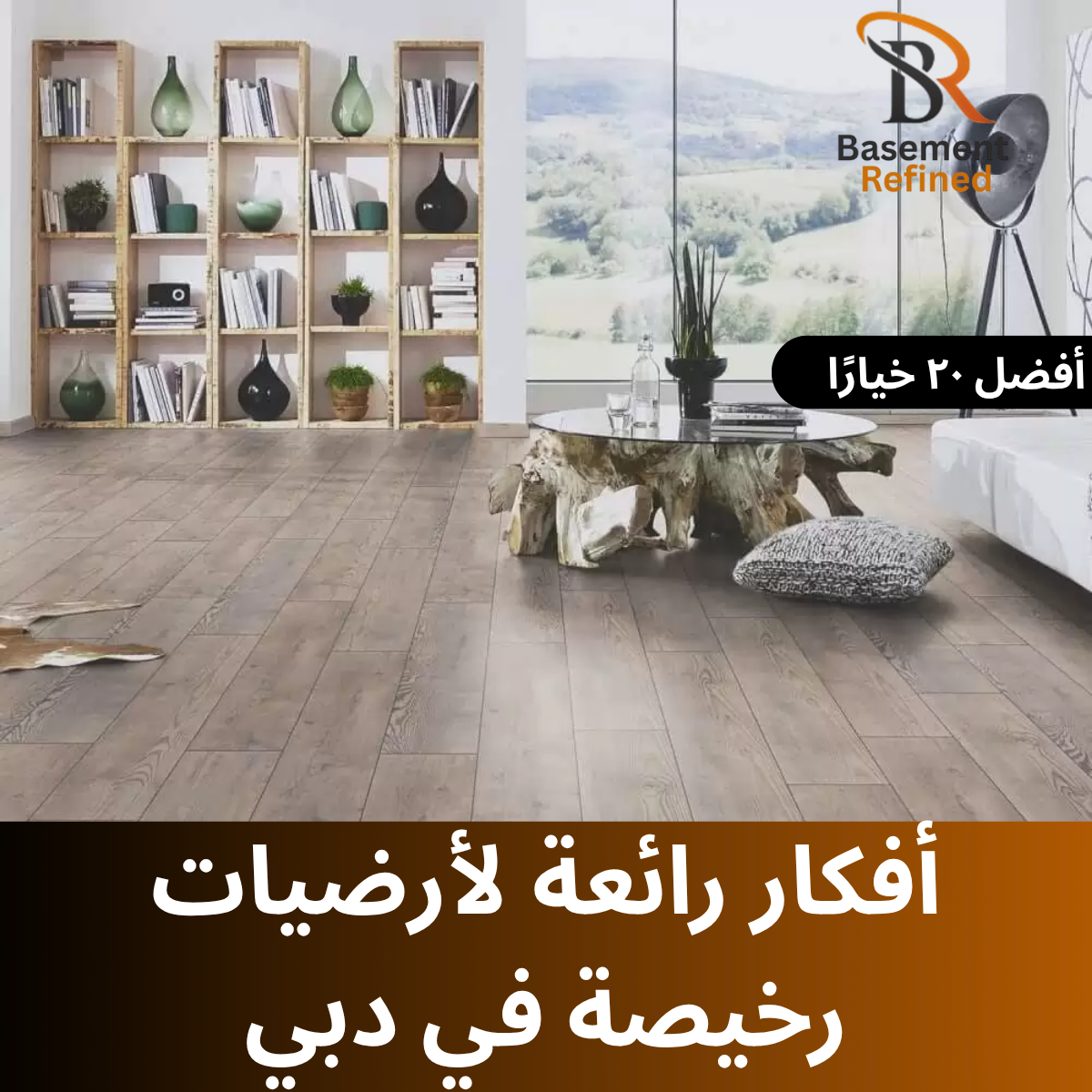Opening Hook
Imagine returning home after a scorching summer day in Dubai, unwinding in your cool, inviting basement that feels just as comfortable as the rest of the home. But instead of a damp, musty concrete surface, you step onto an elegant, smooth finish that says: this space is finished, cared for, and built to last. If you’re searching for the best basement flooring in Dubai, you’re in the right place—let’s explore how to turn that vision into reality.
Audience Focus
This article is tailored specifically for Dubai-based homeowners and property investors—people who live and work in a climate of high humidity and temperature, and who seek practical, long-term solutions for their basements. Whether you’re finishing a new villa’s basement, upgrading an older property for rental, or preparing a home‑gym space under your Dubai garden villa, the choices here fit your region, budget, and lifestyle.
Think about this: You’re a young professional in Dubai, maybe transitioning from a rented apartment to a villa. Your basement is a blank canvas right now—maybe it’s a storage space, maybe just concrete—but you want to turn it into a usable zone: a family den, a home theatre, or even a guest suite. The flooring choice will shape that transformation. You need a durable, moisture-resistant, Dubai-appropriate floor solution that still looks good and doesn’t blow your budget.
Read More: Best Basement Flooring Options 2026 | Dubai Guide & Costs
Why Basement Flooring Matters in Dubai
When we talk about choosing the best basement flooring for a Dubai home, we must consider the region’s particular challenges. Unlike many temperate‑climate basements, Dubai homes face:
- High external humidity and occasional heavy rainstorms.
- Basements are often in direct contact with earth or concrete slabs, where moisture vapour can migrate.
- The need for finishes that are waterproof flooring for basements, mold‑resistant basement flooring, and durable basement floor solutions.
- The importance of basement subfloor preparation—skipping this step can undermine any nice material above.
So, when you read “best basement flooring in Dubai,” it’s not just about looks—it’s about performance in this specific environment.
Read More: Durable Basement Floor Rubber Tiles in Dubai — Choose the Best for Your Space
Understanding Your Basement Subfloor in Dubai
Why Subfloor Preparation is Critical

One of the most frequent mistakes homeowners make is choosing a stylish material, then skipping proper sub‑floor preparation. In a Dubai basement, basement subfloor preparation is non‑negotiable. According to local expert guides, “Follow this plan to protect any floor over a cement basement. Step‑by‑step: moisture testing → fix the envelope → prime and level → choose adhesives and trim.”
Key prep steps you should consider:
- Moisture/vapour testing (e.g., ASTM F2170 or F1869) to ensure no hidden dampness.
- Crack repair and leveling of the concrete slab.
- Moisture‑barrier or vapour‑control layers where needed.
- Streamlined flat and smooth surface to avoid telegraphing imperfections into your finished material.
The Checklist for Dubai Basements
Before you pick material, check off these items:
- Exterior drainage and waterproofing of walls (to keep water away).
- Indoor humidity control (aim for < 60% relative humidity).
- Confirm that the concrete slab is clean, dry, and free of old coatings/dust.
- Ensure expansion joints or floating floor gaps are planned (especially for click systems).
- Choose adhesives/underlays rated for high humidity.
Failing to prepare the subfloor can lead to warping, mould growth, adhesive failure, or worst—having to rip out and redo the floor.
Read More: Stylish Basement Flooring Ideas for Dubai Homes
Top Material Options for Best Basement Flooring in Dubai
Here are the main categories of materials that many Dubai homeowners use for their basements—including how they stack up for your needs.
Waterproof Vinyl / SPC (Stone Plastic Composite)
One of the front‑runners for basement spaces in Dubai is SPC or rigid‑core vinyl planks. According to a UAE guide, “Luxury Vinyl Plank and SPC … is the most asked option today in Dubai and Abu Dhabi” for basements.
Pros:
- Excellent moisture resistance (many are waterproof).
- Click‑lock systems allow faster installation, less mess.
- Many designs mimic wood or stone, offering style plus function.
- Comfortable underfoot compared to tile, and quieter.
Cons:
- The subfloor must still be flat and dry (you still need prep).
- Long runs of glass or heat‑gain walls may cause movement if expansion is not managed.
- Floating installations may have limitations under heavy load or in storage rooms.
When to use:
- Family entertainment or living zone in the basement.
- Playroom, media room, or guest suite where you want to be comfortable underfoot.
- When you want a good balance of durability + aesthetics.
Porcelain or Ceramic Tile
For basement areas where you expect moisture, drains, or utility use (laundry, staff room, etc.), tile is still a strong pick. A UAE guide says: “Porcelain… is dense and near zero absorbent. It shines in hot climates.”
Pros:
- Excellent water resistance (especially glazed porcelain).
- Long lifespan, and cool underfoot in hot climates.
- Wide range of styles/finishes.
Cons:
- Hard surfaces may not be as comfortable underfoot or for casual living zones.
- Grout lines may collect dirt or need sealing for mould prevention.
- Installation and leveling costs can be high; potential cold feel without under‑floor heating.
When to use:
- Utility basement zones, rooms with direct ground contact.
- When a durable, “forever” solution matters more than plush feel.
- For basement spaces that may flood or need easy clean‑up.
Epoxy or Resin Flooring
In many Dubai installations (especially commercial/industrial basements), epoxy floor coatings are very popular. “Epoxy bonds to concrete and forms a seamless shell… resists water, stains, and wear.” Another local supplier notes it’s used in basements with proper prep.
Pros:
- Seamless, minimal joints → easy to clean.
- High durability and chemical resistance.
- Ideal for basement workshops, storage rooms, and gyms.
Cons:
- Surface preparation is extremely critical—if the base isn’t dry or crack‑free, it will fail.
- May feel cold/hard underfoot for living zones unless softened via rugs/Zones.
- Style is more industrial unless you choose premium decorative epoxy finishes (metallic, etc).
When to use:
- Home gym, basement workshop, parking/garage‑type basement.
- High‑performance zone where durability beats comfort.
Rubber or Gym‑Grade Flooring
For basements that are going to host a home gym, playroom, or heavy‑use space, rubber flooring is worth considering. A Dubai‑specific article says: “Rubber flooring is inherently water‑resistant … ideal for below‑grade applications like basements.”
Pros:
- Great shock absorption, comfortable for workouts or children’s zones.
- Water‑resistant and slip‑resistant in humid climates.
- Long‑life and low maintenance.
Cons:
- There may be an initial odor when installed.
- Limitations in aesthetics compared to tile or vinyl.
- Under heavy furniture loads, it may dent.
When to use:
- Home‑gym in basement, children’s play area, multi‑use space where comfort underfoot and safety matter.
Read More: Top 5 Basement Flooring Ideas Perfect for Dubai Homes
Comparing Vinyl vs Tile Basement Flooring in Dubai
Let’s look at how two of the most popular choices measure up: Vinyl (SPC) versus Tile (porcelain/ceramic) for a Dubai basement context.
| Moisture management | Very good, waterproof surface; needs flat subfloor | Excellent surface resistance, but grout is weak point |
| Comfort underfoot | Softer feel, quieter, warmer | Hard and cool, may feel intense in bare feet |
| Install speed | Fast click systems | Slower: leveling, adhesive, grout, etc |
| Flood recovery | Easier to replace planks locally | Grout may need repair; whole tiles harder to fix |
| Cold/heat transfer | Better; with foam back or underlay | May need underfloor heating or rugs if in living zone |
| Cost‑effectiveness | Broad range; good value for living zones | Variable: budget to premium, but high cost for premium tile + install |
| Aesthetics variety | Many wood or stone‑look finishes | Very wide tile styles, large formats, stone looks |
| Best for | Family/guest living zones in basement | Utility rooms, areas with water/drain contact |
From the UAE guide:
“Basement Tiles vs Vinyl UAE … Vinyl (SPC) and LVP beat laminate in flood areas. Epoxy and porcelain still lead for wet areas with drains.”
So if your basement is going to be a comfortable living zone (family room, media room) and not subject to flooding, vinyl/SPC may be the best pick. If it’s a utility or flood‑prone area, tile (or epoxy) could be more appropriate.
Read More: Best Basement Flooring Ideas for Dubai Homes | Sheet Vinyl & More
Mold‑Resistant Basement Flooring & Maintenance in Dubai
In a humid region like Dubai, mould‑resistant basement flooring isn’t just a bonus—it’s often essential. Basements with improper vapor control can trap moisture and encourage mould growth.
Here are some tips for mold resistance and maintenance:
- Choose materials with non‑porous surfaces (vinyl, epoxy, glazed porcelain).
- Use moisture barriers and dehumidifiers in the basement (especially if naturally humid).
- Ensure your grout lines and joints are sealed and regularly cleaned (in tile zones).
- Pick finishes with anti‑slip and anti‑microbial properties (some epoxy systems offer antibacterial surface).
- Implement a regular inspection routine – check for signs of dampness or dark patches near walls.
- When furnishing, keep storage off ground slabs (especially where drainage might back up).
Read More: Stylish Interlocking Basement Flooring Ideas Dubai
Budgeting & Cost Insights for Basement Flooring in Dubai
Understanding realistic budgets helps you choose wisely. According to local guides:
- For SPC/LVP in Dubai, the material ranges from about AED 30–70 per square meter in 2025.
- For epoxy systems, including preparation, typical cost bands are AED 120–400 per square meter, depending on complexity.
- For porcelain tile, the budget varies widely depending on size, brand, installation, etc.
Important cost factors to account for:
- Subfloor repair, moisture mitigation, and leveling.
- Underlay and adhesive (for vinyl) or grout/sealers (for tile).
- Expansion gaps, trims, and skirting board finishing.
- Professional installation, especially in humid/difficult areas.
- Furniture/flooring load expectations.
A practical tip: Get two quotes: One that uses economy material + minimal prep, another that uses premium material + full prep. The difference often comes down to the “invisible” costs: subfloor fix, moisture control, and leveling.
Read More: Top Basement Flooring Ideas 2025 Dubai’s Best Options
Choosing the Best Basement Flooring in Dubai – Step by Step
Here’s a recommended decision‑making process:

- Define the room use: Family lounge? Guest suite? Home gym? Storage?
- Check environmental risk: Is the basement prone to dampness/flooding? Does it have subfloor moisture issues?
- Prep the subfloor: Conduct moisture tests, fix slab issues, ensure a flat surface, and install a vapour barrier if needed.
- Select material class:
- Living/comfort zones → SPC/Vinyl or premium tile.
- Utility/gym/workshop zones → Epoxy or rubber.
- Flood‑prone zones → Tile or epoxy.
- Match aesthetics + budget: Choose materials that fit your interior style, durability needs, and budget.
- Plan installation: Leftover boards/planks, consider expansion gaps, choose adhesives/underlays rated for the UAE climate.
- Maintenance plan: Know how to clean, maintain, and monitor (especially for mould/humidity).
- Future proofing: Consider resale value, ease of swap/repair (vinyl allows easier plank replacement than tile).
Read More: Looking to refresh your home? Discover the best house painting services in Dubai today!
Frequently Asked Questions (FAQs)
Q1: What is the best waterproof flooring for basements in Dubai?
A: The best waterproof flooring for basements in Dubai would be one of: waterproof SPC vinyl with proper subfloor prep, seamless epoxy coating, or glazed porcelain tile with sealed grout. The actual best depends on your use case and baseline condition.
Q2: Can I use laminate flooring in a Dubai basement?
A: Generally not recommended for basements, especially if moisture/vapour is an issue. Guide advice says laminate can swell with water and is risky for wet zones.
Q3: How important is basement subfloor preparation?
A: Extremely important. Without proper prep (moisture testing, leveling, vapour barrier) even premium materials can fail. Local experts emphasise this step.
Q4: Vinyl vs tile for a basement family room – which should I pick?
A: If you want comfort, ease, a warmer feel, and you’re confident the basement is dry and flat → choose vinyl/SPC. If the space deals with water risk, direct ground contact, or you want maximal durability → tile may be better.
Q5: How do I ensure my basement floor is mold‑resistant?
A: Choose non‑porous surfaces, ensure moisture control and ventilation, seal joints/grout, keep humidity under control (< 60% RH), and monitor regularly.
Read More: Looking to refresh your home? Discover trusted and affordable painting services in Dubai today!
Closing
Finishing your basement in Dubai with the best basement flooring isn’t just a matter of picking a nice surface—it’s about matching the material to your space, preparing correctly, embracing the climate, and thinking long‑term. When done well, you’ll have a cool, inviting, dry basement that adds comfort, value, and versatility to your home.
Whether you go for waterproof SPC vinyl in your family lounge, a sleek porcelain tile for a guest suite, or an industrial epoxy floor for a home gym—the key is preparation, context, and intentional choice.
So what’s your basement going to become? A media zone, a quiet retreat, a workout arena, or something entirely new? Once you decide on the use, the flooring becomes part of the story. And if you’ve found this guide useful, feel free to share, comment below with your project details, or ask us for sample suppliers, budgeting tips, or local installation contacts in Dubai.
Ready to take the next step? Book a subfloor inspection, request sample boards, and compare two top quotes for your space. Your future basement awaits.
What could your basement become if the flooring were right from the start?
🏗️ Basement Project Calculator
Latest Post
-
Basement Ceiling Ideas Hide Ductwork Smartly
Opening Hook Imagine walking into your basement in Boise, Idaho—where the ceiling is so low that you brush your head on the joists—and noticing a sleek, well-designed backdrop above you instead of exposed ductwork and pipes. That difference, thanks to smart basement ceiling ideas, transforms a cramped, unfinished area into a welcoming space for movie…
-
أفكار رائعة لأرضيات رخيصة في دبي | أفضل ٢٠ خيارًا
تخيل زوجين شابين في شقة مريحة في مرسى دبي، يخطوان حافيي القدمين على أرضية أنيقة بلمسة خشبية. غرفة المعيشة تتلألأ بضوء مسائي خافت، والأرضية تحتها لا تزال تبدو جديدة تمامًا رغم سنوات من الاستخدام – وكل هذا بميزانية محدودة. هذه هي قوة اختيار أرضيات جميلة ورخيصة في دبي: الأناقة والتوفير في آن واحد. التركيز على…
-
Beautiful Cheap Flooring Ideas in Dubai | Top 20 Picks
Imagine a young couple in a cosy apartment in Dubai Marina, stepping barefoot onto a sleek, wood-look floor. The living room glows with soft evening light, the flooring beneath still looks brand-new despite years of use—and all this on a budget. That’s the power of choosing beautiful, cheap flooring in Dubai: style and savings in…



